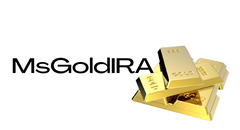The Unjustly Vilified Heroes
Prostitution, blackmail, slumlords, and Bitcoin miners who censor transactions may seem like unsavory characters, but they are actually heroes of the free market economy. Despite facing widespread scorn and outlawry, these individuals provide valuable economic services. To truly understand their heroism, we must remove the shackles imposed upon them by misguided societal norms and government intervention.
Challenging Conventional Perceptions
In his 1976 book, "Defending the Undefendable," economist Walter Block challenges traditional notions of morality and economics. He examines controversial figures, such as prostitutes, blackmailers, and slumlords, to illustrate fundamental principles of libertarianism and economic theory.
Prostitution: A Symbol of Individual Autonomy
Block argues that voluntary transactions in the sex industry should be protected, rather than prohibited. He emphasizes the concept of self-ownership and the right to engage in activities that do not infringe upon the rights of others.
Blackmail: A Question of Free Speech
Contrary to popular belief, Block contends that blackmail, while morally questionable, is not inherently criminal. He believes it falls under the realm of free speech and negotiation, highlighting the importance of distinguishing between ethical concerns and legal prohibitions.
Slumlords: Misunderstood Providers of Affordable Housing
Block argues that slumlords, often depicted as callous and exploitative, fulfill a market need by offering affordable housing options to individuals with limited resources. He emphasizes the role of competition and market dynamics in driving improvements in living standards over time.
Exploring the Consequences of Government Intervention
Block's controversial examples provoke discussions on individual liberty, property rights, and the unintended consequences of restrictive policies. The book urges readers to reevaluate their perspectives on morality, economics, and the role of authority in regulating personal choices.
The Censoring Miner: A Controversial Economic Hero
If Walter Block were a Bitcoin advocate, he might consider Bitcoin miners who censor transactions as controversial economic heroes. While their actions have faced backlash within the Bitcoin community, they represent a vital market behavior that aligns with Block's principles.
Respecting Property Rights in Block Construction
The issue of censoring transactions boils down to property rights. Each individual constructing block templates has the right to include or exclude transactions based on their motivations. This voluntary behavior allows the free market mechanism to coordinate economic decisions effectively.
The Power of Market Sentiment
By aligning their actions with market sentiment, block template creators can maximize their profits. Conversely, diverging from market sentiment can lead to reduced profitability and potential financial instability. Coercing block constructors violates their property rights and undermines the decentralized nature of Bitcoin.
The Beauty of the Free Market in Bitcoin
The Bitcoin network thrives on the freedom of market forces. It empowers individuals to adjust their transaction fees, influencing the prioritization of their transactions. The network's adaptability and reliance on free market dynamics ensure that transactions find their way onto the base layer chain.
Individual Freedom and Free Market Efficiency
In conclusion, "Defending the Undefendable" challenges societal norms and perceptions by shedding light on the vital roles played by controversial figures within the free market. Expanding this framework to Bitcoin mining, the inclusion or exclusion of transactions in block templates highlights the delicate balance between individual freedom and network functioning.
Respecting property rights in block construction allows the free market mechanism to coordinate economic decisions. Coercion and interventionism not only violate core property rights but also jeopardize the essence of decentralization and censorship resistance in Bitcoin. The remarkable adaptability of the Bitcoin network showcases the potency of free market dynamics in ensuring transactions are processed efficiently.
Whether defending controversial figures or examining the intricacies of the Bitcoin network, the core principles remain the same: the value of individual freedom, respect for property rights, and the efficiency of free market mechanisms in coordinating complex systems.
This is a guest post by Michael Matulef. Opinions expressed are entirely his own and do not necessarily reflect those of BTC Inc or Bitcoin Magazine.
Frequently Asked Questions
Can I buy gold using my self-directed IRA
While you can purchase gold from your self-directed IRA (or any other brokerage firm), you must first open a brokerage account such as TD Ameritrade. You can also transfer funds from an existing retirement fund.
The IRS allows individuals to contribute as high as $5,500 ($6,500 if they are married and jointly) to a traditional IRA. Individuals can contribute as much as $1,000 per year ($2,000 if married filing jointly) to a Roth IRA.
If you do decide to invest in gold, you'll want to consider purchasing physical bullion rather than investing in futures contracts. Futures contracts are financial instruments based on the price of gold. They allow you to speculate on future prices without owning the metal itself. Physical bullion, however, is real gold and silver bars that you can hold in your hand.
How to Open a Precious Metal IRA
First, you must decide if your Individual Retirement Account (IRA) is what you want. Once you have decided to open an Individual Retirement Account (IRA), you will need to complete Form 806. You will then need to complete Form 5204 in order to determine which type IRA you are eligible. This form must be submitted within 60 days of the account opening. Once this has been completed, you can begin investing. You could also opt to make a contribution directly from your paycheck by using payroll deduction.
If you opt for a Roth IRA, you must complete Form 8903. Otherwise, it will be the same process as an ordinary IRA.
To be eligible for a precious metals IRA, you will need to meet certain requirements. The IRS requires that you are at least 18 years old and have earned an income. You cannot earn more than $110,000 annually ($220,000 if married filing jointly) in any one tax year. Additionally, you must make regular contributions. These rules will apply regardless of whether your contributions are made through an employer or directly out of your paychecks.
An IRA for precious metals allows you to invest in gold and silver as well as platinum, rhodium, and even platinum. But, you'll only be able to purchase physical bullion. This means you won’t be able to trade stocks and bonds.
You can also use your precious metals IRA to invest directly in companies that deal in precious metals. This option can be provided by some IRA companies.
There are two major drawbacks to investing via an IRA in precious metals. First, they don't have the same liquidity as stocks or bonds. They are therefore more difficult to sell when necessary. Second, they don’t produce dividends like stocks or bonds. So, you'll lose money over time rather than gain it.
Should You Open a Precious Metal IRA?
Precious metals are not insured. This is the most important fact to know before you open an IRA account. There are no ways to recover the money you lost in an investment. All your investments can be lost due to theft, fire or flood.
Investing in physical gold and silver coins is the best way to protect yourself from this type of loss. These coins have been around for thousands and represent a real asset that can never be lost. If you were to offer them for sale today, they would likely fetch you more than you paid when you bought them.
Choose a reputable company with competitive rates and quality products if you are looking to open an IRA. It's also wise to consider using a third-party custodian who will keep your assets safe while giving you access to them anytime.
You won't get any returns until you retire if you open an account. Keep your eyes open for the future.
What is the best way to hold physical gold?
Gold is money and not just paper currency. People have used gold as a currency for thousands of centuries to preserve their wealth and keep it safe from inflation. Today, investors invest in gold as part a diversified portfolio. This is because gold tends do better in financial turmoil.
Today, Americans prefer precious metals like silver and gold to stocks and bonds. Although owning gold does not guarantee that you will make money investing in it, there are many reasons to consider adding gold into your retirement portfolio.
Another reason is the fact that gold historically has performed better than other assets in times of financial panic. Gold prices rose nearly 100 percent between August 2011 and early 2013, while the S&P 500 fell 21 percent over the same period. Gold was one asset that outperformed stocks in turbulent market conditions.
Another advantage of investing in gold is that it's one of the few assets with virtually zero counterparty risk. If your stock portfolio goes down, you still own your shares. If you have gold, it will still be worth your shares even if the company in which you invested defaults on its debt.
Finally, gold provides liquidity. This means that, unlike most other investments, you can sell your gold anytime without worrying about finding another buyer. Gold is liquid and therefore it makes sense to purchase small amounts. This allows you take advantage of the short-term fluctuations that occur in the gold markets.
Who is entitled to the gold in a IRA that holds gold?
An individual who has gold is considered to be a “form of money” by the IRS and subject to taxation.
To be eligible for the tax-free status, you must possess at least $10,000 gold and have had it stored for at least five consecutive years.
Gold can be used to protect against inflation and price volatility. However, it is not a good idea to own gold if you don't intend to use it.
You will need to declare the value of gold if you intend on selling it one day. This could impact how capital gains taxes you owe for cash investments.
Consult a financial advisor or accountant to determine your options.
Which precious metals are best to invest in retirement?
Silver and gold are two of the most valuable precious metals. Both are easy to sell and can be bought easily. Consider adding them to the list if you're looking to diversify and expand your portfolio.
Gold: Gold is one of man's oldest forms of currency. It is very stable and secure. Because of this, it is considered a great way of preserving wealth during times when there are uncertainties.
Silver: Investors have always loved silver. This is a great choice for people who want to avoid volatility. Silver, unlike gold, tends not to go down but up.
Platinium: Another form of precious metal is platinum, which is becoming more popular. It's resistant to corrosion and durable, similar to gold and silver. It's also more expensive than the other two.
Rhodium: Rhodium can be used in catalytic convertors. It's also used in jewelry making. It's also relatively inexpensive compared to other precious metals.
Palladium (or Palladium): Palladium can be compared to platinum, but is much more common. It's also more accessible. This is why it has become a favourite among investors looking for precious metals.
Statistics
- You can only purchase gold bars at least 99.5% purity. (forbes.com)
- The price of gold jumped 131 percent from late 2007 to September 2011, when it hit a high of $1,921 an ounce, according to the World Gold Council. (aarp.org)
- (Basically, if your GDP grows by 2%, you need miners to dig 2% more gold out of the ground every year to keep prices steady.) (smartasset.com)
- If you accidentally make an improper transaction, the IRS will disallow it and count it as a withdrawal, so you would owe income tax on the item's value and, if you are younger than 59 ½, an additional 10% early withdrawal penalty. (forbes.com)
- Contribution limits$6,000 (49 and under) $7,000 (50 and up)$6,000 (49 and under) $7,000 (50 and up)$58,000 or 25% of your annual compensation (whichever is smaller) (lendedu.com)













